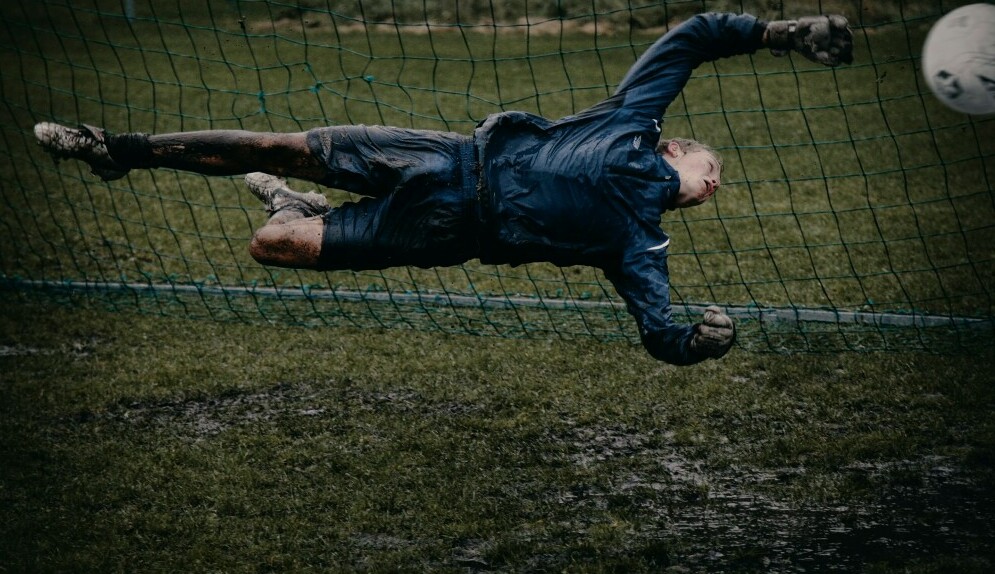
If you’re a young soccer player, or the parent of one, you’re likely aware of how much energy is spent darting across the field. But what’s the key to keeping that energy consistent? It’s all about what goes on your plate. Nutrition is as critical to a young athlete’s development as any drill or practice session. It’s not just about filling up the tank; it’s about choosing the right fuel.
Let’s look at the essential nutrients needed. Carbohydrates are the primary source of fuel during high-intensity sports like soccer. Think of them as your energy currency on game day. Proteins are the building blocks for muscle repair and growth, so they’re just as crucial. Healthy fats shouldn’t be overlooked either; they play a significant role in long-term energy supply.
You’re probably wondering, ‘How do I put this into practice?’ Start by integrating whole grains, lean proteins, and fruits and vegetables into your regular meals. Opt for whole-wheat pasta, chicken breast, and a colorful salad, for example. And don’t forget about the importance of meal timing—eating a balanced meal 2-3 hours before a game can make a monumental difference in your performance.
And finally, there’s one teammate that’s vital in this game of nutrition—hydration. Drinking enough water before, during, and after playing is crucial for maintaining your concentration and energy. Implementing these nutritional tips can elevate a youth soccer player’s game from good to exceptional. But just knowing what to eat isn’t enough—it’s important to build these practices into daily routines, which is exactly what we’ll dive into next.
Off the Field Nutrition to Build Healthy Habits
Nutrition doesn’t stop when the game time does. I’m here to help you understand why developing consistent, healthy eating habits off the field is just as crucial for youth soccer players. Strong nutritional choices contribute to recovery, growth, and overall physical development, which means better performance next time they lace up.
You might be wondering about the implications of sugar and processed foods. Well, these energy zappers can really do a number on a young athlete’s body, leading to energy crashes and potentially affecting long-term health. That’s going to include discussing better alternatives that young players will actually enjoy.
Healthy habits can be delicious, too. Let me share some ideal snack ideas that are easy to prepare and will fuel your young soccer stars. From homemade granola bars to fresh fruit smoothies, these options are packed with the right nutrients and taste.
You can’t always avoid fast food, especially with a packed soccer schedule. But don’t worry too much about the occasional drive-thru run. It’s all about making smarter choices when you’re on-the-go. Opt for grilled items over fried, avoid sugary drinks, and maybe swap fries for a side salad when you can.
It’s a team effort, and not just on the soccer field. Involving the entire family in these healthy eating practices ensures that the right habits stick. It can be as simple as meal planning together or choosing healthier options at the grocery store. And hey, when everyone’s in on the game plan, you’re already winning.
Supplements and Young Athletes: Necessary or Not?
Everywhere you look, there’s a new supplement claiming to boost performance. If you’re a young soccer player, or a parent trying to make the best choices for your athlete, it can be a minefield to navigate.
First off, I’m going to bust some myths. The truth is, most young athletes can get what they need from a well-rounded diet. Supplements are not a shortcut to success, and relying on them can actually be dangerous.
That said, there are times when a dietitian might recommend a specific supplement. For instance, if a blood test shows a deficiency in iron or vitamin D, a supplement might be necessary. But this is the exception, not the rule.
I can’t stress enough the importance of real food over pills and powders. Real foods come with a whole host of nutrients, not just the one or two that supplements offer. Plus, they lack the potential risks associated with overconsumption or unregulated substances. So, I’d always suggest opting for a plate stacked with colorful fruits and veggies before considering a supplement.
Nevertheless, it’s crucial for both parents and coaches to understand the legal and health implications of supplements. Some can contain banned substances for competitive athletes, and the side effects can be serious. If ever in doubt, always seek advice from a medical professional.
Approach supplements with caution and educate yourself on what you’re putting into your body. Choose real food first and talk to a professional if you think you need that extra edge. Because when it comes to your health, it’s better to play it safe than sorry.
Striking the Right Balance: Nutrition and Mental Health

Wrapping up, it’s clear that food doesn’t just affect the physical strength and endurance of youth soccer players; it’s also a game-changer for their mental well-being. We’ve seen how a nutritious diet can keep a player’s mind sharp and focused, providing an edge on the soccer field. But beyond that, the right foods can help manage the pressures of competition, reduce stress, and promote a restful night’s sleep.
Just as important as what players eat, is the relationship they develop with food. It’s crucial to establish a positive approach to eating, one that sees food as a source of fuel and enjoyment, not as a source of anxiety. Snacking on fruit instead of chips, reaching for water over sugary drinks – these small choices contribute to a healthier mindset and body image among young athletes.
Coaches and parents play a significant role in fostering a supportive dialogue about nutrition. By encouraging balanced meals, emphasizing the importance of variety, and sometimes indulging in moderation, they can help players strike a healthy balance. Remember, nutrition education isn’t about restriction; it’s about making informed choices that enhance performance and happiness both on and off the field.
In closing, never underestimate the power of good nutrition. It propels young soccer players to their best physical performances, while also nurturing their mental strength. So, make sure that the key takeaways on nutrition extend beyond the pitch – they’re life lessons in health, resilience, and well-being. Here’s to the vibrant blend of food, fitness, and mental health that keeps the game enjoyable and our players thriving!
